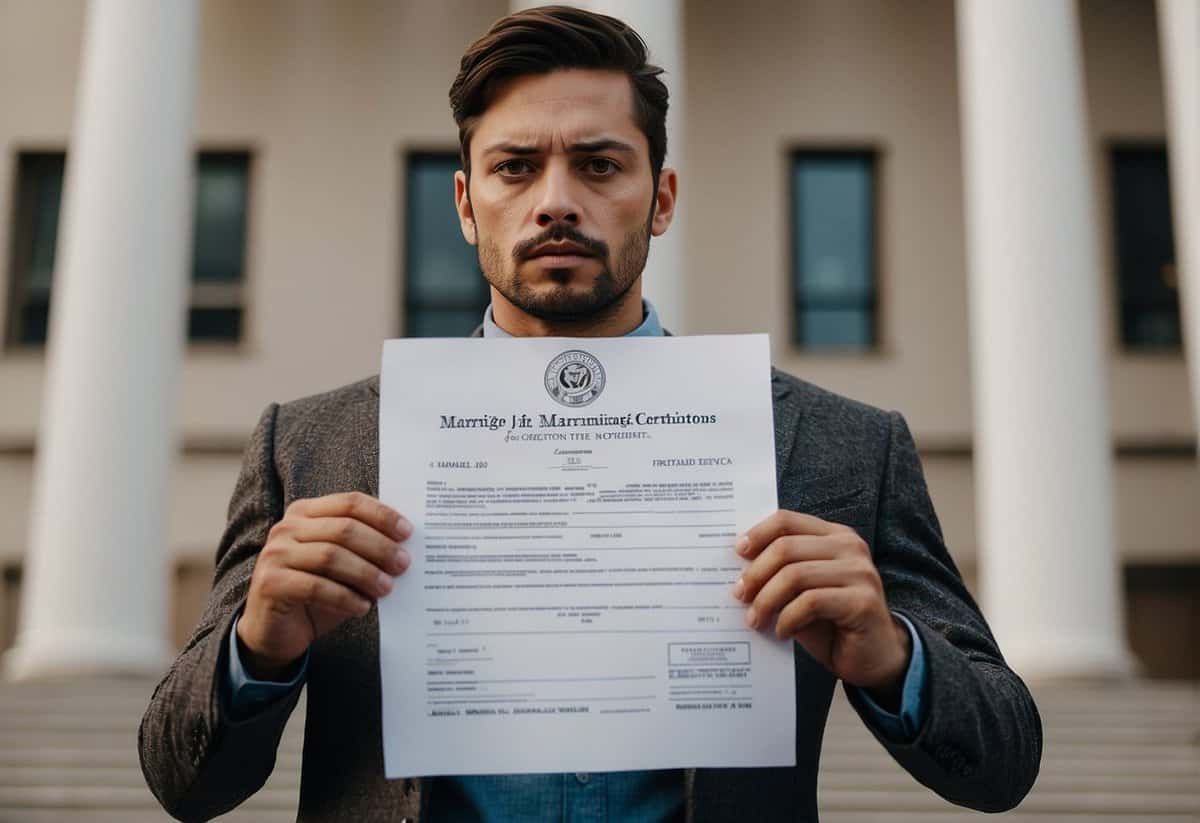Can I Remarry Without Getting a Divorce in the UK? Exploring Legal Boundaries
In the UK, it’s important to understand the legalities surrounding marriage and divorce, particularly if you’re considering entering a new marital relationship. If you are already married, you cannot legally remarry without first obtaining a divorce from your current spouse. Any subsequent marriage entered into without a legally recognized divorce would be considered bigamous, which is a criminal offense in the UK. The process to legally end a marriage is well-established and mandates compliance with specific legal procedures.

Divorce laws in the UK have been designed to protect all parties involved, ensuring a clear and fair process that addresses financial settlements and the welfare of any children. When a marriage is legally dissolved through the issuance of a Decree Absolute, you are then free to remarry. Understanding this process is key to ensuring your new marriage is valid and that your rights and responsibilities are upheld.
Key Takeaways
- Legally ending your current marriage is necessary before remarrying.
- The divorce process ensures the legal rights of both parties are respected.
- Remarrying without a divorce can lead to legal penalties.
Legal Requirements for Divorce in the UK

To end a marriage in the UK, the legal proceedings must be properly navigated to ensure a legal separation. This requires knowledge of the necessary conditions, steps for initiating the divorce, and understanding the finalisation of the process.
Understanding Divorce Proceedings
When you decide to divorce in the UK, it begins by making an application to the court for a divorce. Previously paper-based, divorce proceedings can now be initiated through a digital service provided by the government. You have to state the grounds for your divorce in what’s known as a divorce petition. The courts have the jurisdiction to assess and approve your application.
Criteria for Divorce
To start the divorce process, you need to have been married for at least one year. The UK has adopted a no-fault divorce system, which means you no longer have to blame your partner for the breakdown of the marriage. You can apply alone (sole application) or alongside your spouse (joint application). Whether your marriage is ending or you’re dissolving a civil partnership, you’ll follow a similar legal process.
Finalising Divorce: Decree Absolute and Conditional Order
Once the court is satisfied that you have grounds for divorce, it will issue a decree nisi, a document that states the court doesn’t see a reason why you can’t divorce. After a set period, you can then apply for a decree absolute, which is the final order that legally ends the marriage. Alongside this, you may also want to seek legal advice to draft a consent order, which is a legal document that confirms your financial agreement and ensures the court enforces it. The process concludes once the decree absolute has been granted, and your divorce is finalised. Be aware, throughout this process, you’ll incur a court fee, which is required at the time of your application.
Consequences of Remarrying Without Divorce

If you’re considering getting remarried, it’s crucial to understand that doing so without a finalized divorce can have serious consequences.
Legal Ramifications
In the UK, remarrying before your divorce is finalized is legally recognized as bigamy, which is a criminal offense. This means if you remarry without having the divorce decree absolute in hand, you could be found guilty of this crime. The legal system is very clear on this – a marriage can only be legally entered into when any previous marriages have been legally terminated.
The Remarriage Trap
The term “remarriage trap” refers to the situation you find yourself in if you remarry without being legally divorced. It’s a trap because not only is your new marriage considered invalid, but any financial and legal commitments made in the belief that you were free to marry could now be void. This can complicate financial arrangements, and may also affect issues like inheritance and property rights.
Financial Considerations and Settlement

Before taking the step to remarry, it’s vital you understand how your financial landscape may be affected, particularly regarding existing assets and future obligations. Let’s review what you must consider in terms of finances, property, and maintenance when you’ve not yet finalized a previous divorce settlement.
Assessing Finances and Assets
When separating your life from a former partner’s, detailed consideration of your joint finances is essential. You should compile a complete list of all marital assets, which includes but is not limited to bank accounts, investments, and valuable items. Assessing these assets is critical in determining a fair division. If you remarry without addressing these concerns, your ability to claim such assets could be compromised.
Pension and Property Considerations
Ignoring pension and property considerations before remarrying can have significant repercussions. Typically, pensions are one of the largest assets, and understanding the right to a portion of your ex-spouse’s pension is crucial. Moreover, the division of property, often formalized through a property adjustment order, must be handled properly to prevent future legal and financial complications.
Maintenance and Support Orders
Regarding maintenance, if there are any existing maintenance orders for you or your spouse, these could be affected by remarriage. Spousal maintenance is often a key component of financial arrangements after separation. It’s also possible to receive or pay a lump sum as part of a financial settlement. Familiarize yourself with maintenance and support orders since these dictate ongoing financial responsibilities and can influence the outcomes of financial provision orders.
Remember, it’s advisable to secure a legally-binding financial order before remarrying to protect your financial rights and ensure all settlements are properly structured.
Impact on Family and Children

When contemplating remarriage without a divorce in the UK, you should understand the intricate implications it can have on your family structure, particularly the well-being of your children and the dynamics of domestic relations.
Child Maintenance and Welfare
In the absence of a formal divorce, your legal obligations to provide child maintenance remain unaffected. That means you’re still responsible for the financial support of your children from your previous relationship. It’s important to note that benefits you or your family are receiving could be adjusted, as your household income may change following a new partnership. It is vital that you update relevant agencies to prevent any legal complications.
Effects on Domestic Relationships
Entering into a new relationship while still being legally married can complicate domestic relationships. For your children, adapting to a step-parent without closure from the first marriage could lead to emotional stress or behavioral changes. In some cases, it may even trigger issues relating to domestic abuse or neglect. Your family may also face challenges adjusting to new living arrangements, blending of families, and the potential perception by others of a lack of legal separation. It’s pivotal to communicate with all family members and, if possible, seek guidance to navigate these changes smoothly.
Frequently Asked Questions

Navigating the process of remarrying after a divorce in the UK comes with specific legal requirements. If you’re considering remarriage, these FAQs will guide you on how long you need to wait, the legalities involved, and the appropriate steps to take.
How long must I wait after a divorce to remarry in the UK?
After receiving your Decree Absolute, you can remarry immediately. There’s no waiting period required.
What are the legal consequences of remarrying before a divorce is finalized in the UK?
You cannot remarry in the UK before your divorce is finalized. Doing so would be considered bigamy, which is a criminal offense.
What is the process to legally marry again after a divorce in the UK?
To legally marry after a divorce in the UK, ensure you have your Decree Absolute, which is the final document confirming your previous marriage has ended.
Is it possible to have a religious remarriage after a divorce without a legal proceeding in the UK?
In the UK, a religious ceremony alone does not constitute a legally binding marriage. You must follow legal procedures, including obtaining a Decree Absolute from a civil court.
If my spouse remarried without a legal divorce, what actions should I take in the UK?
If your spouse remarried without obtaining a divorce, they may have committed bigamy. You should seek legal advice for your specific situation.
Can a foreign marriage be dissolved in the UK, and how does this affect my ability to remarry?
A foreign marriage can be dissolved in the UK if certain conditions are met. This dissolution will clear the way for you to remarry. Always confirm with legal authorities if your specific circumstances qualify.

